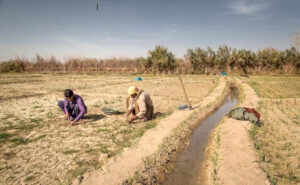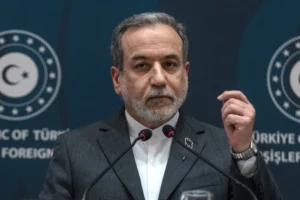KABUL (SW) – A survey conducted by Salam Watandar with 36 young boys and girls in Kabul reveals that girls are more deprived of the right to choose than boys.
The report includes interviews with 18 boys and 18 girls, of whom 17 – comprising three boys and 14 girls – stated that their right to choose has been taken away by their families and the Islamic Emirate.
These young individuals claim that they have been deprived of the right to marry, the right to leisure, the right to choose friends, the right to select their place of residence, the right to choose their career path, and the right to decide their field of study.
According to these youths, family restrictions, social challenges, and limitations imposed by the de-facto government have resulted in a lack of autonomy in various aspects of their personal and social lives.
Baran, a 23-year-old resident of Kabul, says she lacks personal independence in most aspects of her life. She is deprived of the right to choose her spouse, leisure activities, clothing, friends, and other basic rights. “It has to be according to my family’s choice. I resist and want to dress in my own style, but I face threats and reprimands from my family, relatives, and the government. Choosing friends and places is not up to me, and my human rights are being violated,” she says.
The girls who have lost their right to choose say they are forced to accept these deprivations and will likely have to submit to marriages they do not want in the future.
Freshta, an 18-year-old resident of Chahar Qala-e-Wazirabad in Kabul, says she has been deprived of the right to choose in most aspects and stages of her life due to her gender. She has completed her schooling but can no longer pursue higher education because of the ban on girls’ education.
“I haven’t married yet, and if I do someday, it will have to be according to my family’s wishes. We are Sayeds, and in our culture, we cannot marry someone who is not a Sayed. I cannot continue my education because the government does not allow it. Now, the situation is such that I have no freedom,” Freshta explains.
Out of the 18 boys interviewed in this report, three stated they have no right to choose friends, leisure activities, place of residence, or job.
Samad, 28, resident of 11th district in Kabul, says that despite being fully mature, his family has taken away most of his decision-making rights. “I need my family’s permission to travel abroad and for some other matters. I do not have the right to choose a job or trade because my family does not allow it,” he adds.
On the other hand, 19 young people, including 4 girls and 15 boys, reported that they have not had their right to choose taken away. They say that although their families do not impose restrictions on their choices, the limitations set by the de-facto government have left them without the right to choose in many areas.
Banafsha Mohammadi, who has not faced family-imposed restrictions, says: “We do not have the right to education, the right to wear what we want, to go out for fun, or to be with our friends. I cannot pursue education. Places are allocated to men.”
Harir, who also has the right to choose from her family, adds: “My family allows me to choose my spouse and they do not interfere in some matters. However, due to the change in the regime, we do not have the right to education or to choose our clothing. Most of the restrictions we face are because of the country’s situation.”
These young people say their families do not impose any restrictions on them and always respect their goals and aspirations.
Sayed Mohibullah Hussaini, in Kabul who have the right to choose, says: “I have the right to choose. There is no coercion. I have personal independence, although I need to consider my family’s conditions when it comes to friends.”
Abuzar Hussain also mentions: “I grew up in a family where decisions were always made based on consultation. If something was related to me, my opinion was very important, and my parents valued my decisions. In many cases, I had the right to choose.”
Impacts of restrictions on women’s mental well-being
Activists for women’s rights, given the significant portion of women who lack the right to choose in their lives, point to the restrictions imposed on women and the prevalence of undesirable customs within families as reasons why they lack the right to choose in most aspects of their lives.
Zainab Rezaie, a women’s rights activist, said, “People’s mindset is that we are a cultural society, and traditionally, the husband is chosen by the family; clothing, behavior, and even permission to study are dictated by the family. These restrictions have increased now, which is a cause for concern and has even led to suicides and girls running away from home.”
Meanwhile, experts in social issues and psychology consider the right to choose as a fundamental need of young people. They argue that depriving them of this right leads to mental distress in youths and damages their social development.
A social issues expert, Zia Nikzad commented, “Depriving girls and boys of the right to choose will have dangerous consequences for their personal and social lives. It is a fundamental need of today’s generation to be given freedom and to choose their own path and way of life. Having the right to choose is part of the foundations of life so that girls and boys don’t lack intellectual freedom and freedom of action.”
Yalda Wahidi, a psychologist, also said, “Imposing restrictions on children is not logical because it has a very negative impact on their mental well-being, and it can even lead them astray.”
Efforts to address women’s rights
Abdul Ghaffar Farooq, the spokesperson for the Islamic Emirate’s Ministry for the Propagation of Virtue and the Prevention of Vice (MoPVPV), asserts that the ministry has organized awareness programs regarding the importance of respecting the right to choose.
Over the past three years, “We have undertaken significant work in this area, and the public has been made aware. We have addressed approximately 4740 cases of violence against women and prevented around 4890 cases of forced marriage”, Farooq said.
Despite these efforts, the right to choose, which is now considered the most important prerequisite for personal development and social growth in any society, is deprived of many citizens in Afghanistan by families and public institutions. In this context, due to prevailing customs among families, girls are often more vulnerable.






